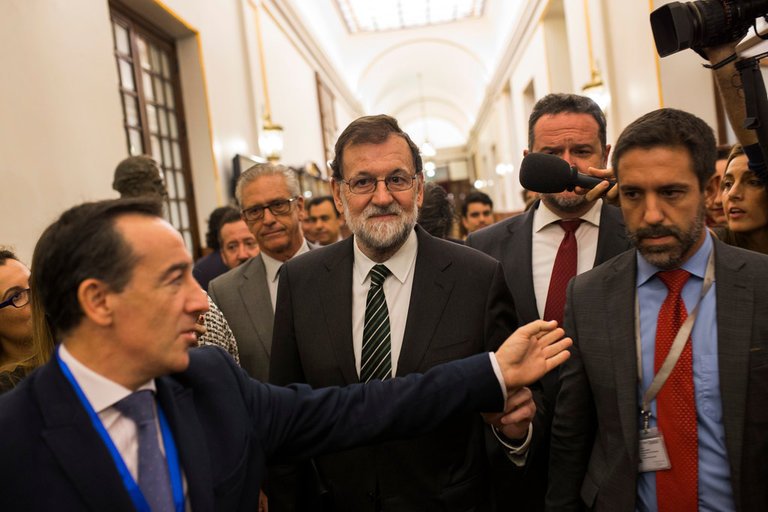20.10.2017 - 11:11
Spain’s crisis over Catalonia started spiraling out of control on Thursday when both sides escalated their threats. The Catalan leader warned that regional lawmakers could declare independence if the central government assumed emergency powers over the region, upon which Madrid threatened to do just that. Either move would be disastrous.
With the Spanish prime minister, Mariano Rajoy, and the Catalan regional president, Carles Puigdemont, talking past each other, the space for a political settlement seemed ever smaller. There is no question that Mr. Rajoy has legality on his side: The Constitution proclaims Spain’s unity to be “indissoluble.” But Madrid’s use of force in attempting to block the Catalonian independence referendum on Oct. 1, the jailing of two prominent Catalan separatists without bail and now Mr. Rajoy’s threat to invoke a never-used constitutional tool to suspend Catalan autonomy have served only to drive Mr. Puigdemont into a corner.
Mr. Puigdemont has been fuzzy about his intentions since forging ahead with the vote. The Catalan government says 90 percent of referendum voters favored independence, but only about 40 percent of the Catalan electorate participated, and earlier polls had shown a majority opposing secession. After the vote, Mr. Puigdemont issued a nebulous statement about suspending independence to make room for “dialogue” and later called for international mediation. Madrid has rejected both.
The political uncertainty has already hurt the Catalan economy, as some businesses have decided to move out of Barcelona. If Mr. Rajoy carries out his threat to invoke Article 155 of the Constitution and take direct control of Catalonia, regional protests will surely deepen the economic woes.
The door is not yet closed. Mr. Rajoy has not said exactly what he intends to do at the emergency cabinet meeting he called for Saturday “to defend the general interest of Spaniards, among them the citizens of Catalonia.” Mr. Puigdemont’s government has not unequivocally declared independence. Both sides can still offer concessions, or at least conciliatory signals, that could move them back from the brink. The Catalans could affirm that their independence is in abeyance; Madrid could signal it is prepared for greater Catalan autonomy. They’ve made their stand, they’ve made their point. It’s time to show true leadership.
Follow The New York Times Opinion section on Facebook and Twitter (@NYTopinion), and sign up for the Opinion Today newsletter.

